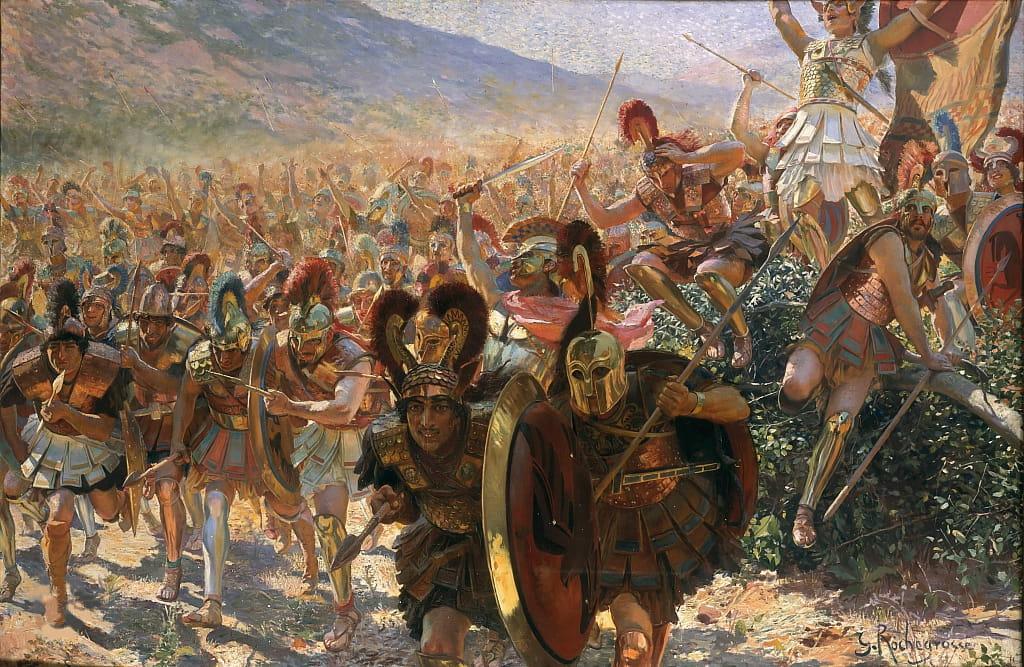In his latest work, “The Harvest of War: Marathon, Thermopylae, and Salamis: The Epic Battles That Saved Democracy,” ancient Greek historian Stephen P. Kershaw has produced a thorough study of the famous fifth century B.C. battles between the city-states (“poleis”) of ancient Greece (or Hellas) and the Persian Empire: the ground battles of Marathon, Thermopylae, and Plataea, and the sea battles of Salamis and Artemisium. He follows this with their individual significance in the Greeks’ defense of their democratic freedom.
These specific battles are important to remember for many reasons, including for their inspirational power millennia later. As Henry Wadsworth Longfellow once wrote: “Lives of great men all remind us/ We can make our lives sublime,/ And, departing, leave behind us/ Footprints on the sands of time.” Kershaw presents these historical footprints as a reminder of what has always been required of people who desire freedom over tyranny.






